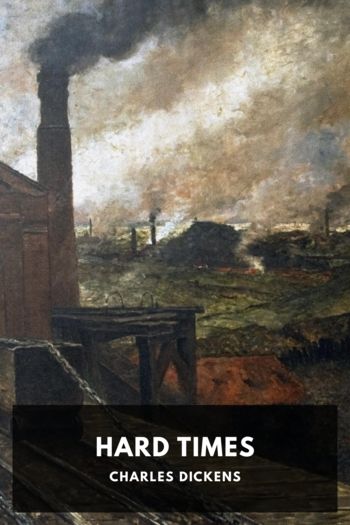Millennium Holland, Tom (read dune .TXT) 📖

Book online «Millennium Holland, Tom (read dune .TXT) 📖». Author Holland, Tom
Certainly, as Leo trailed his triumphant way back to Italy, it was evident to his exultant supporters that a pope might indeed serve to make the weather far beyond the limits of Rome. Some, however, drew conclusions that were even more soaring. “The royal priesthood of the holy Roman see constitutes an empire both heavenly and earthly.’ This vaunting claim was made by a man renowned, not for excitability but rather for his emotionless, indeed chilly, powers of reasoning. Humbert of Moyenmoutier was a monk from the same region of Lorraine in which Leo had served as a bishop, and the two men had long been confidants. Summoned to accompany the Pope to the Lateran, the haughty and brilliant Humbert had soon emerged as his effective number two. Boldly, he set about pushing Leo’s claims to leadership of the Church to ever more potent extremes. Stitching together musty precedents with a lawyerly dexterity, the Donation of Constantine not least, Humbert found himself able to demonstrate with great conviction a most momentous conclusion: that the papacy had an ancient entitlement to the rule of the entire Christian world. Yet even that was not the limit of where his logic led him. ‘For such is the reverence among Christians for the holder of the apostolic office of Rome,’ Humbert coolly insisted, ‘that they prefer to receive the holy commandments and the traditions of their faith from the mouth of the head of the Church rather than from the holy Scriptures or the writings of the Fathers.’ Here was justification, in effect, not merely for papal weight-throwing, but for permanent revolution.
Quite what this might mean in practical terms was a different matter. There was a hint, however, to be glimpsed in Humbert’s promotion, in 1050, to a new post: that of cardinal bishop. While this title was venerable, dating back almost to the time of Constantine, the cardinalate itself had always played an essentially ceremonial role in the life of the Roman Church: serving the Pope as little more than a gilded dumping ground for superannuated aristocrats. Now, however, under the radical new management style introduced to the Lateran by Leo, all that began to change. Indeed, remarkably, within the space of only a few hectic years, he would succeed in transforming the college of cardinals into a veritable powerhouse of administrative talent manned, not by decrepit locals, but by prominent reformers drawn from far beyond the limits of Rome. Leo, as practical as he was visionary, had never been so naive as to imagine that his ambitions for the Christian people could be achieved merely at the prompting of his own exhortations. Accordingly, then, he looked to his ministers to provide him with what he himself, as an imperial bishop, had once provided Henry III: government. Humbert and his colleagues duly set to work, sweeping away cobwebs from the creaking administrative machinery of the Lateran, dusting down ancient books of law that might serve the papal purpose and posting legates with imperious missives across the length and breadth of Christendom. The duties that might be paid, in short, less to a bishop than to a Caesar.
Except, of course, that there were limits to what even a servant as wily and efficient as Humbert could achieve. Startling although the sudden starburst of papal prestige appeared to dazzled Christians, it remained, to a large degree, a thing of smoke and mirrors. Above all, Leo lacked what, in a fallen world, even the humblest castellan depended upon for survival: an iron fist. This, as it had done for centuries, still threatened the papacy with danger. Rome remained a city on the front line of the Latin world. In Sicily, of which Humbert had rather optimistically been made the archbishop, Islam was putting down roots more deeply than ever, with Christians a fast-shrinking minority penned into the island’s north-east corner, and Palermo, its staggeringly wealthy capital, become almost completely Muslim. In Apulia, along the Adriatic coast, Constantinople maintained her grip upon the region’s major ports, and nurtured her inveterate ambition to secure the whole of southern Italy for the Basileus. Yet these two foes, the Saracens and the Byzantines, formidable powers though they might be, offered at least the reassurance of familiarity. Far more alarming was a menace that appeared to have sprung up from nowhere, and almost overnight. In 1050, following up his northern tour, the ever itchy-footed Leo headed southwards. What he found there stunned and appalled him. It appeared that nothing had changed since the days of Otto II. Everywhere there stretched blackened fields, ruined vineyards and half-burned churches. In villages ashen and abandoned, or along empty, silence-haunted roads, it was not unusual to find twisted corpses, veiled beneath white dust and fed upon by flies. And often, on the brow of a distant hill, there might be glimpsed a sinister presence: the silhouettes of horsemen. These were not Saracens, however — nor Byzantines. Instead, shockingly, they were Latin Christians, the compatriots of five bishops who just the previous year had been delegates at the Pope’s own synod of Reims, immigrants to Italy only recently descended from the margins of the North: warriors, men of iron, sprung from ‘that most restless of nations – the Normans’.
And that they were savage, even by the standards of murderous brutality that had for so long prevailed in the South, was an article of faith among all who had ever had the misfortune to confront them – whether native, or Byzantine, or Arab. Indeed, an aptitude for inspiring terror was what had originally been the Normans’ primary selling point. In the war-torn badlands of Apulia, hired swords had always been at a premium; and anyone with a horse and armour was in a seller’s market. In 1018, a band of Norman travellers had been recruited to take part in a revolt against the





Comments (0)